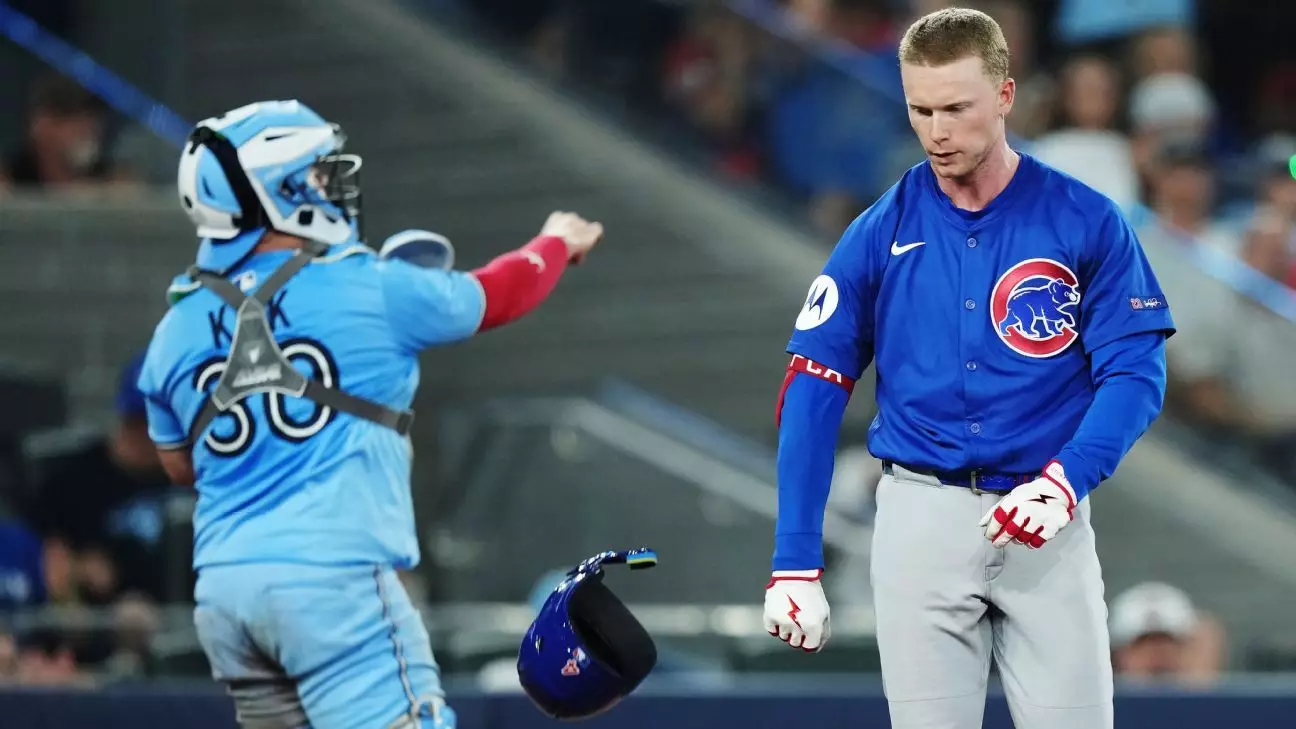In the world of professional sports, resilience isn’t just an admirable trait—it’s an absolute necessity. The Chicago Cubs find themselves at a pivotal crossroads, currently grappling with a significant offensive slump that threatens their season’s momentum. While some might wallow in frustration or succumb to the pressure, the true champions recognize the importance of confronting adversity with unwavering honesty. The ongoing struggle isn’t merely a matter of poor luck or fleeting bad days; it’s a test of character and strategic adaptability. Their recent decline—culminating in a three-series losing streak—is an indication that reliance solely on past performance won’t suffice. Instead, the team needs a radical shift in mindset. The emphasis must move from results-driven anxiety to process-oriented discipline. Success in baseball, after all, isn’t a product of immediate gratification but a culmination of consistent effort, mental toughness, and strategic adjustments. It’s time for the Cubs to acknowledge their current hardships without denial, using these moments as catalysts for a transformative comeback.
The Myth of Instant Fixes: Embracing Steady Growth
One of the most insidious pitfalls a team can fall into during a slump is the temptation to chase quick fixes—hot streaks, clutch moments, or flashy plays that seem to promise salvation. However, true mastery in baseball, as in life, hinges on patience and persistence. The Cubs’ current woes highlight the importance of sticking with their fundamental approach: honing daily routines, maintaining mental clarity, and trusting their process. Manager Craig Counsell’s assertion that “things not going right is not what’s happening” underscores a profound truth: the challenge lies in perception as much as in reality. Often, teams become their own worst enemies when they obsess over outcomes rather than focusing on actionable steps. For the Cubs, that means emphasizing disciplined plate appearances, aggressive defense, isolated moments of individual excellence, and systematic adjustments rather than panic-driven swings at the ball. It is in these small, disciplined actions—repeated consistently—that they will forge a path back to offensive potency. Patience, paired with unwavering focus on process, becomes their most potent weapon.
The Role of Leadership and Mental Toughness
Leadership within a team is not just about strategy and game-day decisions; it’s about cultivating a resilient mindset across the roster. The Cubs’ captaincy should focus on inspiring accountability and fostering an environment where players feel empowered yet grounded. Pete Crow-Armstrong’s acknowledgment of the psychological toll—feeling the weight of underperformance—illustrates that mental hurdles are real and pervasive. Overcoming this demands more than individual effort; it necessitates a collective attitude that setbacks are temporary and part of the journey toward greatness. Mental toughness in baseball is built through adversity, not in spite of it. Leaders must encourage players to maintain confidence, emphasize effort over results, and recognize that a slump is merely a chapter, not the final page. When players are given the space to learn and grow from their struggles, they evolve into not just better athletes but also more resilient individuals. This mindset shift can act as the catalyst for a powerful turnaround, transforming frustration into fuel for future success.
The Path Forward: Reclaiming Confidence and Offensive Rhythm
The Cubs possess the talent and history of success needed to bounce back—what they lack is consistency and unwavering belief in the process. In sports, attrition and adversity aren’t signs of weakness; they are opportunities to test resilience and strategic adaptability. The team’s current offensive struggles—reflected in declining batting averages and zeroed-in slumps for key players—must be viewed as temporary setbacks. By focusing on small wins—such as getting back to fundamentals, refining approach at the plate, and supporting each other emotionally—they can reignite their offensive spark. The upcoming games against division rivals are not just tests of skill but also moments to prove resilience. Maintaining perspective is crucial: even if division titles seem distant now, sustained effort can reopen doors and shift momentum. The attitude the Cubs adopt now, rooted in grit and steady improvement, will determine their trajectory. The path to reclaiming their power lies in refusing to accept mediocrity, pushing through discomfort, and demonstrating that true strength is born from persistence amidst adversity.
Empowering the Culture of Resilience
A team’s culture is its backbone. The Cubs are uniquely positioned to harness their internal resilience by fostering a mindset that embraces challenge as a necessary ingredient for growth. While frustration and disappointment are natural, these must be channeled into constructive energy. The narrative within the clubhouse should shift from lamenting missed opportunities to celebrating incremental improvements. Cultivating a culture that prizes perseverance, humility, and continual learning transforms setbacks into stepping stones. Supporting players like Kyle Tucker and Seiya Suzuki, who are experiencing slumps, through targeted mental drills and confidence-building measures is essential. Ultimately, resilience is an internal muscle that grows stronger when exercised daily. If the team can embed this principle deeply into their identity, their response to adversity will evolve from reactive to proactive. It’s this internal fortitude, more than anything else, that will propel the Cubs toward a successful second half—one where they emerge not just as survivors but as empowered victors.


Leave a Reply